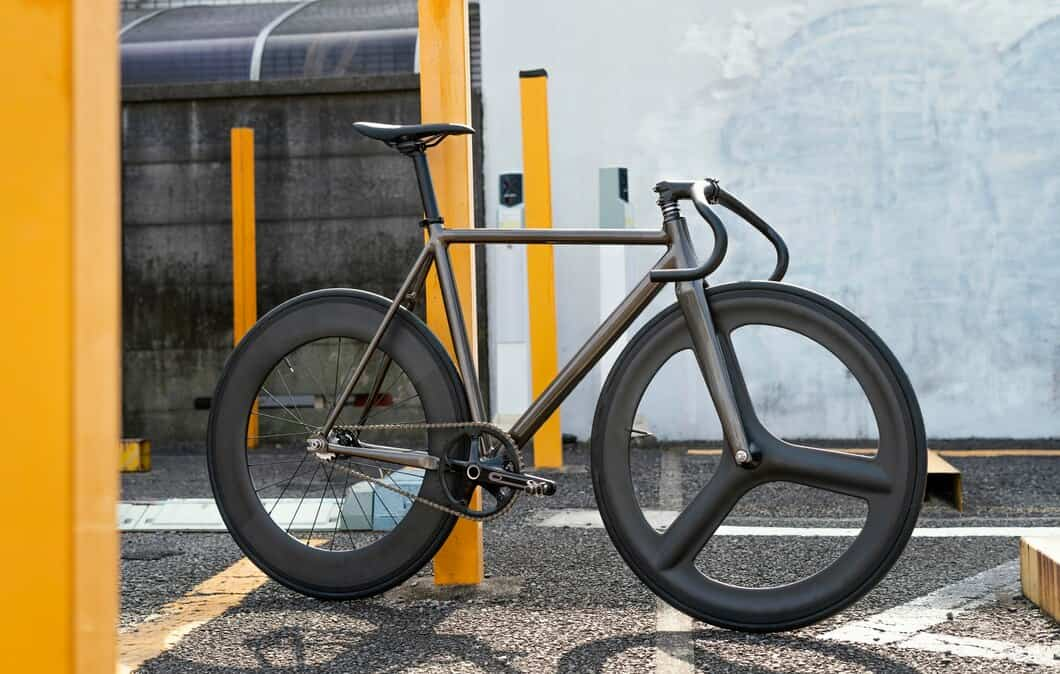Can An Electric Bike Go 60 Mph?
Time: 07 Apr 2024 22:25

An electric bike, often called an e-bike, is a human-powered bicycle with an integrated electric motor that can assist with propulsion. E-bikes are becoming increasingly popular as a way to reduce emissions and improve the affordability and convenience of transportation. While electric bikes can make cycling easier and more accessible, there are questions about their capabilities, such as speed and range. In this article, we will explore whether electric bikes can go 60 mph and examine the factors that affect their speed.
The top speed of an electric bike is determined by a number of factors, including the power of the motor, the capacity of the battery, and the weight of the bike and rider. Most electric bikes have a maximum assisted speed of 20 to 28 mph (32 to 45 km/h), although some high-performance models can reach speeds of up to 45 mph (72 km/h) or even 60 mph (97 km/h). However, it is important to note that electric bikes are subject to the same speed limits as regular bicycles, and exceeding these limits can be dangerous and illegal.
Speed Limit for Electric Bikes
Speed limits for electric bikes vary depending on the jurisdiction, but in general, they are treated similarly to traditional bicycles. This means that the speed limit for an electric bike is typically the same as the speed limit for a regular bicycle, which is usually around 20 mph in urban areas and 30 mph in rural areas.
There are some jurisdictions that have higher speed limits for electric bikes, such as California, which allows electric bikes to travel up to 28 mph on roads with a speed limit of 35 mph or less. However, it is important to note that these higher speed limits only apply to electric bikes that are equipped with a motor that provides assistance up to 20 mph.
If you are unsure about the speed limit for electric bikes in your jurisdiction, it is always best to consult with the local authorities. They will be able to provide you with the most accurate information.
Types of Electric Bikes
Electric bikes come in various types, each designed for different purposes and terrains. The most common types include Class 1, Class 2, and Class 3 e-bikes, which are categorized based on their assisted speed and level of pedaling assistance.
Class 1 e-bikes provide pedal assistance up to 20 mph (32 km/h) and require the rider to pedal to engage the motor. Class 2 e-bikes offer throttle-only operation, allowing riders to use the motor without pedaling, and provide assistance up to 20 mph (32 km/h).
Class 3 e-bikes are similar to Class 2 but offer pedal assistance up to 28 mph (45 km/h). Some e-bikes also fall under the category of "speed e-bikes" or "Class 4 e-bikes," which can reach speeds of up to 45 mph (72 km/h) and may require a license and registration in certain jurisdictions.
Additionally, fat tire e-bikes are designed for off-road use, with wide tires that provide stability and traction on rough terrain. Folding e-bikes are compact and portable, making them convenient for commuting or storage in small spaces.
Factors Affecting Electric Bike Speed
The speed of an electric bike can be affected by a number of factors, including the motor power, the battery capacity, the weight of the bike and rider, and the terrain. Motor power is measured in watts, and the higher the wattage, the faster the bike will be able to go. Battery capacity is measured in amp hours (Ah), and the higher the Ah, the longer the bike will be able to run on a single charge. The weight of the bike and rider will also affect the speed, with heavier bikes and riders being slower than lighter ones. Finally, the terrain will also play a role, with bikes being able to go faster on flat ground than on hills.
In addition to these factors, the speed of an electric bike can also be affected by the type of motor. There are two main types of motors used in electric bikes: hub motors and mid-drive motors. Hub motors are mounted in the wheel hub, while mid-drive motors are mounted in the center of the bike. Mid-drive motors are generally more efficient than hub motors, and they can provide more torque, which is useful for climbing hills. However, hub motors are less expensive and easier to maintain.
Modifications to Increase Electric Bike Speed

There are a few modifications you can make to your electric bike to increase its speed. One is to upgrade the motor. A more powerful motor will be able to propel you faster. Another is to upgrade the battery. A larger battery will allow you to travel further on a single charge, and it will also provide more power to the motor. Finally, you can upgrade the tires. Wider tires will provide more grip, which will allow you to accelerate faster and climb hills more easily.
It is important to note that these modifications may void your warranty. Additionally, they may make your bike illegal to ride on public roads. Be sure to check your local laws before making any modifications to your electric bike.
Safety Considerations When Riding an Electric Bike at High Speeds
When riding an electric bike at high speeds, it is important to take into account several safety considerations. First, always wear a helmet when riding an electric bike, as this will help to protect your head in the event of a crash. Second, be sure to wear appropriate clothing, such as long pants and a long-sleeved shirt, to protect your skin from road rash. Third, make sure that your electric bike is in good working condition and that the brakes are functioning properly. Finally, be aware of your surroundings and be prepared to react to unexpected situations.
In addition to the above safety considerations, it is also important to be aware of the legal requirements for riding an electric bike in your area. In many jurisdictions, electric bikes are classified as motor vehicles, and as such, riders are required to obey the same traffic laws as other motor vehicle drivers. This includes obeying speed limits, stopping at stop signs and red lights, and using turn signals.
By following these safety considerations, you can help to ensure that you have a safe and enjoyable experience when riding an electric bike at high speeds.
Always ride defensively and be aware of your surroundings. This means being aware of other vehicles, pedestrians, and road hazards. Be prepared to brake suddenly or swerve to avoid an accident. If you are riding in a group, be sure to stay together and ride in a single file.
Legal Regulations Regarding Electric Bike Speed
Electric bike speed limits vary by country and region. In the United States, most states have laws that limit the speed of electric bikes to 20 mph. However, there are some states that allow electric bikes to travel up to 28 mph. In the European Union, electric bikes are classified as mopeds and are subject to the same speed limits as mopeds, which typically range from 25 km/h to 45 km/h.
It is important to note that these speed limits are not absolute. Some electric bikes may be able to travel faster than the legal limit. However, it is important to obey the speed limits in your area to avoid getting a ticket or causing an accident.
If you are unsure about the speed limit for electric bikes in your area, you can check with your local law enforcement agency.
Electric Bike Performance Comparison
Bafang and Bosch are among the most celebrated e-bike motor brands, with a long history and a strong reputation in the cycling market. Both companies offer a wide range of motors, designed for different types of e-bikes and riding styles. In terms of performance, Bafang motors tend to be more powerful and have a higher torque output than Bosch motors, making them ideal for climbing hills or carrying heavy loads. On the other hand, Bosch motors are generally lighter and more compact, making them well-suited for urban riding or commuting.
When it comes to efficiency, both Bafang and Bosch motors are very efficient, with a high power-to-weight ratio. This means that you'll get a lot of range from your battery, regardless of which brand of motor you choose. However, Bosch motors have a slight edge over Bafang motors in efficiency, especially at lower power levels. This makes Bosch motors a good choice for riders who are looking to maximize their range.
Alternative High-Speed Electric Vehicles
Many electric bikes have been gaining popularity for urban transportation needs.
Searching for alternative high-speed electric vehicles has become a trend in recent years. The popularity of electric bikes among people, especially for urban transportation needs, has increased greatly in recent years.
Future of High-Speed Electric Bikes
With advances in battery technology, motor efficiency, and aerodynamic design, the top speed of electric bikes is continually increasing. Some high-speed electric bikes can now reach speeds of over 60 mph, making them a viable alternative to cars for commuting and short-distance travel. As technology continues to improve, we can expect to see even faster electric bikes in the future.
The future of high-speed electric bikes looks bright. As battery technology improves, we can expect to see electric bikes with longer ranges and faster speeds. Additionally, as electric bike infrastructure improves, with more charging stations and dedicated bike lanes, electric bikes will become even more convenient and accessible. As a result, high-speed electric bikes are likely to play an increasingly important role in transportation, offering a sustainable and efficient way to get around.
Frequently Asked Questions
Can electric bikes go faster than 28 mph?
Yes, there are electric bikes that can go faster than 28 mph. These are typically called "Class 3" e-bikes, and they can reach speeds of up to 28 mph with the motor's assistance.
What is the top speed of an electric bike?
The top speed of an electric bike depends on the type of e-bike and the motor's power. Class 1 e-bikes have a top speed of 20 mph, Class 2 e-bikes have a top speed of 28 mph, and Class 3 e-bikes have a top speed of 28 mph with the motor's assistance.
Are electric bikes street legal?
Electric bikes are street legal in most states, but there are some restrictions. In some states, e-bikes are only allowed on bike paths or in certain areas. It is important to check the laws in your state before riding an e-bike on the street.
How much does an electric bike cost?
Electric bikes can range in price from a few hundred dollars to several thousand dollars. The price of an e-bike will depend on the type of e-bike, the motor's power, and the battery's capacity.
Summary
Electric bikes are capable of reaching speeds of up to 60 mph, but this is dependent on several factors. These include the type of motor, the capacity of the battery, the weight of the bike and rider, and the terrain being ridden on.
Most electric bikes have a top speed of around 20-25 mph, but some high-performance models can reach speeds of up to 60 mph. These bikes typically have powerful motors and large batteries. However, it is important to note that riding an electric bike at high speeds can be dangerous, and it is always important to wear a helmet and obey the speed limit.
Recommendation
Can an electric bike go 60 mph?
An electric bike, often called an e-bike, is a human-powered bicycle with an integrated electric motor that can assist with propulsion. E-bikes are becoming increasingly popular as a way to reduce emi...
Is a 1000W ebike fast?
Electric bikes, or e-bikes, are becoming increasingly popular as a way to get around town. They offer a number of advantages over traditional bicycles, including the ability to travel longer distances...
- What is the difference between pedal assist and electric bike?
An electric bike, also known as an e-bike, is a bicycle with an integrated electric motor. The motor can be used to assist the rider with pedaling, or it can be used to power the bike independently. P...
Is 20 mph fast on a ebike?
20 mph may seem like a relatively slow speed, but on an e-bike, it can feel much faster. This is because you're getting the assistance of the electric motor, which helps you to propel yourself forward...
Are e-bikes good for beginners?
The potential benefits of electric bikes for beginners cannot be overstated. E-bikes offer a gentler introduction to cycling, allowing riders to explore further without becoming overly fatigued. They...



